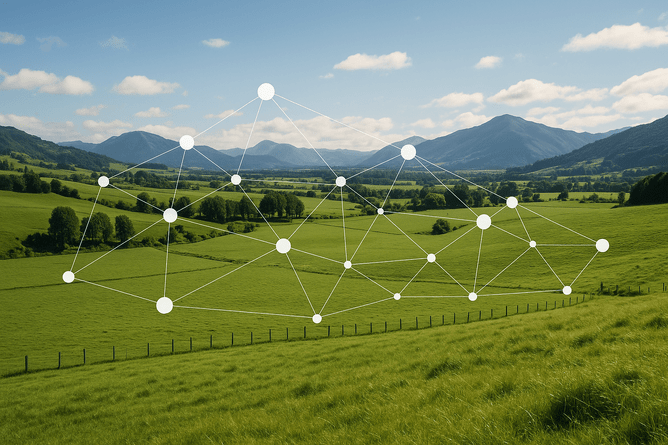Reflecting on the conversations from the 2025 Sprout Summit earlier this year, I am more excited than ever for the opportunities for technology within the agrifood value chain.
From pasture to supermarket aisle, increased data utilisation and adoption of AI technology is set to unlock enormous value. McKinsey projects that full connectivity and digitisation in agriculture could contribute up to US $500 billion in annual GDP by 2030, while Google has estimated that agrifood companies adopting AI tools report 5 times faster decision-making and 3 times faster execution.
The potential here is underpinned by a diversity of data sources across the value chain: lab assays that elucidate plant traits; on-farm sensors and satellites for monitoring field conditions; cold-chain telemetry and retail-scan data that track food movement; and producer records that document productivity/performance to name just a few. These data feeds can be leveraged to enable the development of AI models that can create value for both technology companies internally and externally for their customers.
Sprout is proud to invest in companies that are building such technologies to transform the agrifood value chain. In the lab, Metrovate leverages genomic and plant trait data within an AI-driven computational workflow to supercharge discovery and development of novel precision biostimulants. Their peptide discovery platform designs and tests a multitude of potential designs in silico, leveraging plant data to predict how a peptide will interact with target crops at a molecular level. Physical testing then confirms the computational prediction with results feeding back into the models to continuously improve accuracy and efficiency. Ultimately, Metrovate’s effective use of data and AI technologies enables the company to create internal value through an enhanced product discovery process, which in turn enables them to create value for growers through the provision of next-generation crop inputs.
On the farm, Aimer Farming transforms smartphone camera and satellite data into automated pasture measurements and valuable pasture management insights. Aimer’s computer vision technology can estimate pasture cover with 90% accuracy from a short scan with a smartphone, saving hours of farmers time each week. The company then uses digital twins of customers' farms to automate the creation of pasture management and grazing plans that are optimised for farm productivity and profitability. Ultimately, Aimer’s effective use of on-farm data and AI models enables the company to create direct value for customers through saved time, optimised pasture management, and increased productivity.
There are companies leveraging AI technologies to create value in every part of the agrifood value chain. Computational protein design and high-throughput fermentation analytics are rapidly accelerating the development of animal alternative food products. The combination of AI modelling and CRISPR-Cas gene editing can increase the speed of novel plant cultivar development by 10-15 times. Autonomous drones and agri-robots capture high-resolution phenotype data, which can feed back into both on-farm decisions and R&D platforms, enhancing efficiency in the value chain now while also building the foundation for future gains. Data-driven and AI technologies are not just powerful tools, but the foundation of the next wave of transformation in the agrifood value chain. To quote Vinod Khosla, “The only way you multiply resources is with technology.”
Crispin Dye, Sprout Investment Manager
